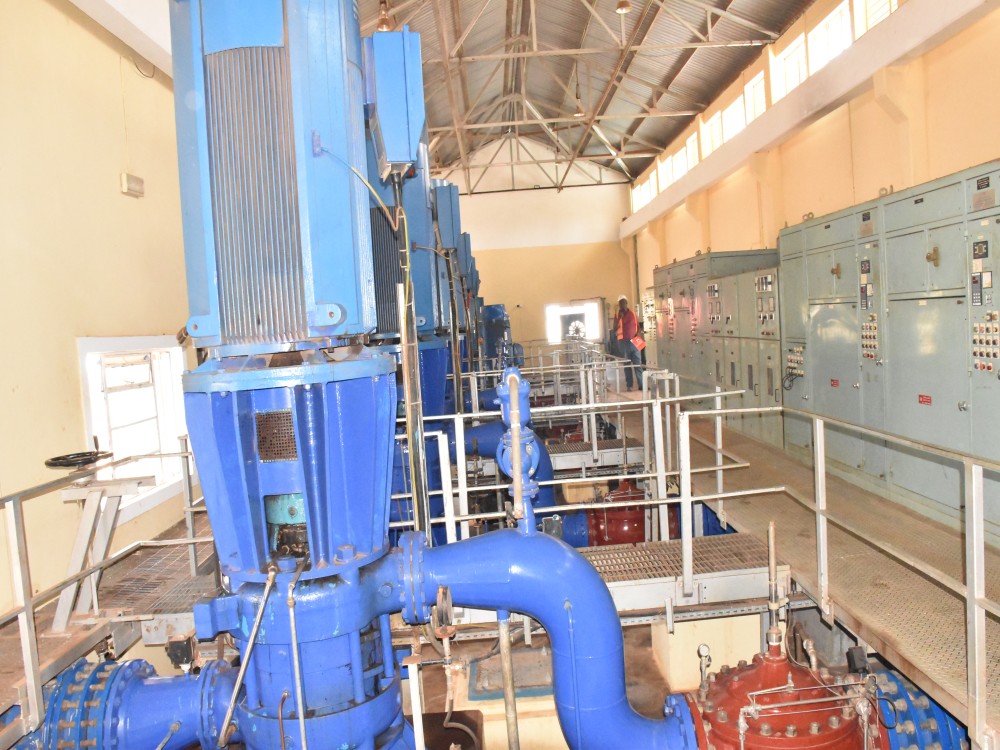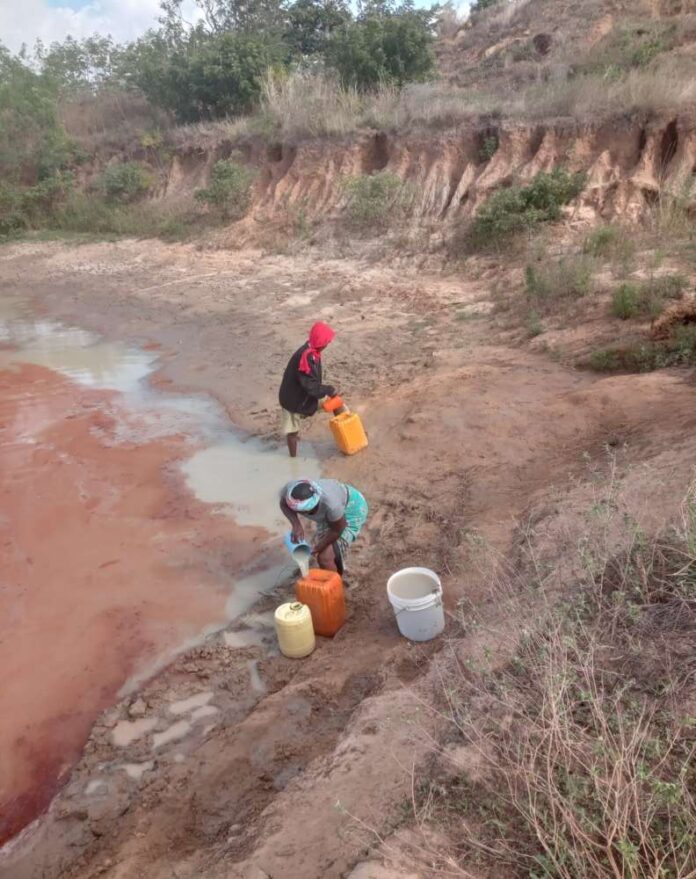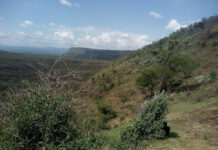By Mahmood Mwanduka, DevReporter, Kilifi County

Key Highlights
- Residents of Jimba in Kilifi County have written to the National Irrigation Board requesting the excavation of water pans in the area.
- Every year, four million people die globally due to lack of access to safe water.
- Public schools in Rabai sub-county are set to receive boreholes to supply water to the schools and nearby villages.
Water shortages experienced by residents of Jimba in Rabai sub-county, Kilifi County, are expected to come to an end with the launch of a new water project by the national government, implemented through the National Irrigation Board (NIB).
This project aims to dig 80 water pans, which will be distributed across nearly every village in the area.
According to a performance report by the Water Service Regulatory Board (WASREB), approximately 1.1 million residents of Kilifi had access to piped water as of June 2022, representing about 73% of the total population of Kilifi County.
Kilifi County is classified as one of the semi-arid counties in Kenya.
Enhance Effectiveness
Kenya’s Water Act 2016 was established to regulate, manage, and develop water resources as well as water and sewerage services.
The Act is designed to enhance the effectiveness of water provision throughout the country in line with the principles and values articulated in articles 10:43, 60, and 232 of the Constitution.
Additionally, the Act established the Water Resources Authority, the National Water Harvesting and Storage Authority, the Water Services Regulatory Board, the Water Sector Trust Fund, and the Water Tribunal, to ensure adequate intervention in water-related issues.
Both national and county governments have initiated strategies to alleviate the water crisis in both rural and urban areas, including the construction of dams, drilling of boreholes, and excavation of water pans.
A 2022 report by the World Health Organization (WHO) indicates that approximately 1.4 million people die each year, and 74 million others experience shortened lives due to inadequate access to clean water, hygiene, and sanitation.
In Kenya, over half of the population—around 28 million people—lack proper access to safe water.
In alignment with the Global Sustainable Development Goal (SDG) 5, Kenya’s Vision 2030 aims to ensure that improved water and sanitation are both available and accessible to all. Achieving this goal necessitates addressing the current challenges within the water sector.
A report from the United Nations (UNESCO-IHP 2012) highlights how some officials collaborate with water ‘mafias’ who exploit vulnerable populations by forcing them to rely on high-cost and low-quality services.
Decided to Write a Letter
According to Japhet Chenze, a development activist from Jimba, many residents, especially women, have suffered greatly due to water shortage.
In response to this hardship, he said they decided to write a letter to the National Irrigation Board (NIB) seeking assistance with water projects.
“We convened as a group to discuss the water crisis, which is a national issue. We lack tap water, and people are struggling—women are particularly affected. The letter was well-received, and we were provided with 90 household water pans,” Chenze explained.
Residents, particularly women led by Amina Mwinga, praised the initiative, describing it as a turning point in addressing water shortages in the area.
The residents told RB News that since most live in rural areas and face financial difficulties, access to water for drinking and domestic use poses a significant challenge.
Chenze noted that although the County Government of Kilifi had initiated multiple phases of water projects costing around Kshs.10 million, these projects have not benefitted anyone, despite the substantial taxpayer investment.
As these projects failed and their struggles intensified, the residents felt compelled to seek alternatives, leading them to write to the NIB.
Benefited Residents
Women, youth, and the general populace have committed to using the water pans to engage in agri-business.
Since the project’s establishment, the pans have provided residents with domestic water, and they hope to benefit further in the future when the pans gain the ability to hold water for an extended period.
The water pans have also helped schoolgirls, allowing them to access water closer to their homes.
“We previously faced challenges, but now we can smile. These pans have reduced the distance we used to walk in search of water,” said Diana Bahati, a high school student.
The government has completed a Ksh. 4 billion water project in Baricho to support residents of Kilifi. This initiative also aims to address the chronic water problems in Kilifi and Mombasa Counties.

Rabai Member of Parliament, Anthony Kenga Mupe, has committed to drilling boreholes in all public schools in the area, stating that these boreholes will also provide free water to residents of nearby villages.
With these initiatives in place, the water crisis in Jimba in Rabai sub-county, is expected to be a thing of the past.
Related Stories






